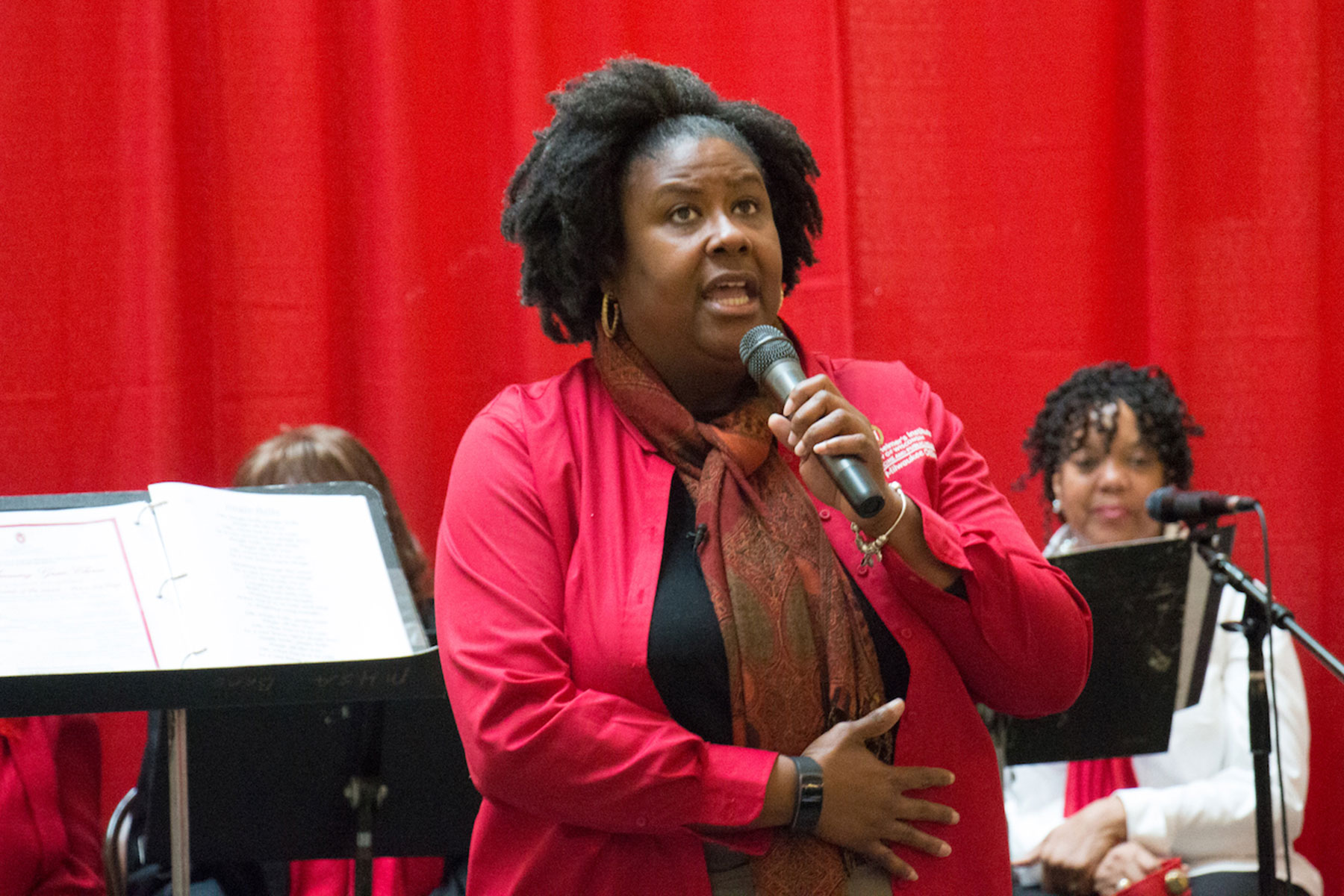
Bader Philanthropies, Inc. recently approved a two-year $310,000 grant to the University of Wisconsin Foundation for the Milwaukee office of the Wisconsin Alzheimer’s Institute (WAI).
The grant will expand outreach activities that help the underserved aging populations of African-Americans in Milwaukee, Racine, and Kenosha counties. The funding will also be used to help increase the number of African-American participants in the Wisconsin Registry for Alzheimer’s Prevention (WRAP) study.
In addition to the grant awarded to WAI, the board allocated more than 142 grants, worth a total of $8.6 million, to support various projects and organizations throughout Wisconsin, the United States, and internationally.
According to the Alzheimer’s Association 2017 Facts and Figures, 110,000 individuals and families in Wisconsin are impacted by Alzheimer’s disease, yet African Americans have two times the increased risk for memory loss, compared to Caucasians. The association says the reason for this is not yet known, but it is believed that higher rates of cardiovascular diseases and lower levels of education among minority groups may contribute to higher rates of Alzheimer’s disease. Ongoing research and outreach through WAI programming is a crucial way to discover if there are unique risk factors for people with different ethnic backgrounds.
People with Alzheimer’s disease and their caregivers receive needed education, quality services and support with the help of the WAI Regional Milwaukee Office through its information, research, outreach, advocacy and service programs.
The grant will fund a full-time Outreach Director, whose role includes direct oversight and leadership of outreach and research programs. The WAI Regional Milwaukee Office continues to collaborate with the Milwaukee Health Services Memory Clinic to provide dementia-specific care for Milwaukee’s African-American community.
“One of the greatest challenges in effectively addressing this disease that still remains is access to an early or timely dementia diagnosis,” says Dr. Mark Sager, Former Director of the WAI. “At WAI, our goal is to improve the lives of older adults and their families who are impacted by Alzheimer’s and other dementias. We are looking to reduce the stigma of and raise awareness about dementia, especially in our underserved and underrepresented communities in the Milwaukee area,” says Gina Green-Harris, Director of WAI Regional Milwaukee Office.
With additional funding, the WAI Regional Milwaukee Office hopes to continue providing outreach services and support to families through programs such as the Melodies and Memories Amazing Grace Chorus program, a signature lifestyle intervention program for WAI. Research shows music has been a useful therapy for Alzheimer’s treatments.
The chorus serves to improve the quality of life of its participants and caregivers through socialization and music. Another key goal for this chorus is to reduce stigma and increase the scientific understanding and awareness of music’s impact on the brain and the impact of caregiver burden.
Chorus participants benefit by receiving continuous education about Alzheimer’s disease and related dementias. Families and participants learn more about care services and are offered educational opportunities, family engagement experiences and respite opportunities. Annual concerts are held in the spring and winter.
Through outreach, research programs and events, radio campaigns, in-home and clinic services, and the Amazing Grace Chorus program, the WAI Milwaukee office estimates that they reach and serve over 30,000 individuals and households annually in Milwaukee and southeastern Wisconsin.
Additional outreach activities being planned for 2018 include the 5th Annual Breaking the Silence continuous education workshops, caregiver appreciation events and participation in community health fairs. These workshops and caregiver events are held throughout the year, including a large Minority Health Month event in April.
WAI collaborates with a number of agencies to better serve the African-American communities including: Milwaukee Health Services Memory Clinic, Milwaukee County Department on Aging, Alzheimer’s Association, Unison, ADRC’s of Racine and Kenosha, Kenosha Community Health Center, Social Development Commission, and the Center for Urban Population Health.
“As a long-time funder of the WAI, this program has a special place in our hearts at Bader Philanthropies, as it serves the key issues our mother Helen Daniels Bader was most interested in, healthier older adults, as well as a passion for the arts and creativity,” said Daniel J. Bader, president and CEO of Bader Philanthropies. “The Wisconsin Alzheimer’s Institute and the Melodies and Memories Amazing Grace Chorus is something she would have enjoyed and we are proud to partner with WAI to create meaningful experiences that bring older adults and families together.”
Almost two dozen singers performed Jingle Bells, White Christmas and other Christmas staples for shoppers on December 9 at Southridge Mall, just south of Milwaukee.
The Amazing Grace chorus is supported by University of Wisconsin–Madison and composed of people with Alzheimer’s disease – and their caregivers. The chorus exploits a chink in the armor of dementia: musical abilities are relatively exempt from attacks on the neural basis for memories.
Before the performance on Saturday, member Steven Mays, a resident of Menomonee Falls, said the chorus is much more than just singing. “You are around other people who have issues like yourself, the tension goes away; it’s a very enjoyable atmosphere.”
The chorus mixes caregivers and people with dementia; to encourage social contact, the pairs seldom sit side-by-side at performances. “When you look at the chorus, you can’t tell if that particular person has Alzheimer’s or is the caregiver,” says chorus member Pearl Cannon. The benefits are significant, but not always predictable, she adds, noting changes in her husband, Charles. “Before, we didn’t travel much, but the more we traveled, the more he wanted to travel.”
The Amazing Grace chorus project began in the summer of 2014, based on a chorus program that began at New York University that showed that learning new songs and singing helps improve memory and mood. Amazing Grace is part of the Wisconsin Alzheimer’s Institute, a UW–Madison project focused on the most common type of dementia, which affects more than 20 million American individuals, families and caregivers.
“The Wisconsin Alzheimer’s Institute provides information, education, research, outreach, advocacy and service programs to help improve lives, advance knowledge and inspire hope,” says Institute director Jane Mahoney, a professor of medicine. The institute is “committed to partnering with organizations, clinics, healthcare professionals and communities to create a reliable and accessible public environment in which Alzheimer’s disease and related dementias are widely recognized, understood based on the most up-to-date information, and aggressively and appropriately treated.”
Amazing Grace builds on a long network of relationships among its members, founders, and leaders, and on the tradition of African-American church music.
“We welcome everybody, but dementia is especially common among minorities,” says Gina Green-Harris, who directs the regional Milwaukee office of the Wisconsin Alzheimer’s Institute. “There is the challenge of getting a diagnosis in a timely fashion, due to healthcare access, public understanding of the disease, and other diseases a person may have. A disproportionate number of folks of color get the disease, but we’re not sure why that is, so we’re trying to increase the number of African Americans in research studies. And we’re doing things to reduce the risk or the impact of the disease, so we can have some quality of life along the journey.”
As part of its broad effort to combat dementia, the Wisconsin Alzheimer’s Institute offers early diagnosis at “memory clinics” to thousands of Wisconsin residents each year. It also connects state residents who have dementia to programs to reduce the isolation and stress, and supports research into Alzheimer’s prevention.
Social contacts are critical to people who as a group tend to be isolated by memory impairment, says Stephanie Houston, a senior outreach specialist and coordinator of the chorus at the Institute. “I can’t say enough about how the chorus has fostered a sense of community, belonging, for so many individuals. It’s an engaging social opportunity for individuals associated with our clinic.”
“We see how the chorus, for those who are isolated due to the condition, is bringing them back into the community,” Houston adds. “At our concerts, they are embraced. Our members feel they once again that they are part of the community, part of something bigger. That builds self confidence. You cannot overstate the impact: ‘Here is something I can do!’”
Bader Philanthropies and David Tenenbaum
David Tenenbaum














